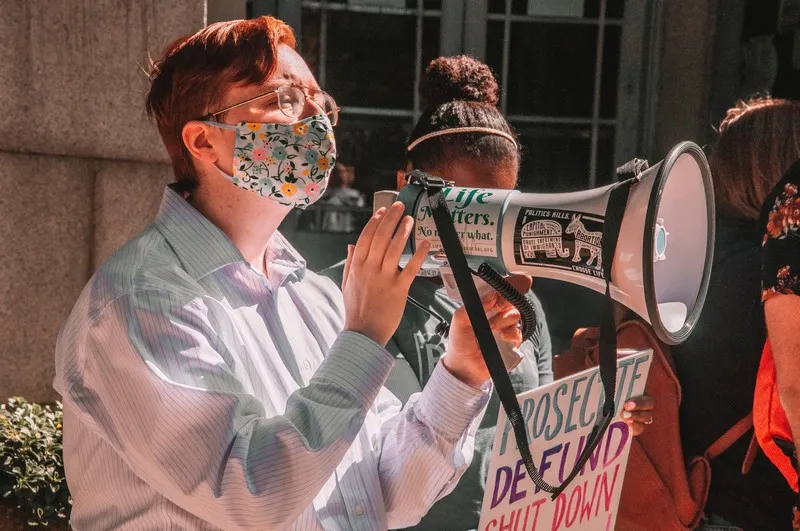Table of Contents
- Introduction
- Key Components of Political Culture
- Typologies of Political Culture
- Formation and Transmission of Political Culture
- Dynamic Nature of Political Culture
- Challenges and Criticisms
- The Importance of Understanding Political Culture
- Conclusion
Introduction
Political culture is a concept that describes the array of values, beliefs, attitudes, and symbols that shape political behavior and provide meaning to political processes. It forms part of the symbolic environment in which political institutions operate and can be found at every level of society, influencing the ways in which people think about authority, governance, and their role as citizens. As such, understanding political culture is crucial for anyone seeking to navigate the complexities of political and social life.
Political culture does not develop in a vacuum. It is shaped by historical events, cultural traditions, social institutions, and ideological currents. From nationalistic sentiments to local political customs, all these elements combine to form a shared framework of political attitudes. This framework, in turn, guides individuals and groups in making political decisions and in interpreting the political actions of others.
In this article, we will explore the core components of political culture, examine different typologies of political cultures around the globe, discuss how political culture is formed and transmitted, and consider some of the challenges that arise as societies grapple with shifting values.
Key Components of Political Culture
At its core, political culture includes several components that help societies function cohesively:
- Values and Norms: Political values, such as democracy, liberty, and social justice, form the bedrock of a society’s political ethos. These values manifest in both formal institutions and informal social practices, providing guiding norms for individual behavior and political processes.
- Attitudes and Beliefs: An individual’s attitudes toward authority, civic engagement, social policy, and national identity emerge from a blend of personal experiences and societal influences. These attitudes and beliefs feed into broader collective sentiments about government responsibilities, citizen rights, and acceptable political conduct.
- Symbols and Rituals: Each society has symbolic representations—flags, national anthems, political ceremonies—that serve to strengthen collective attachment to the polity. These symbols and rituals, whether they are solemn commemorations or festive public gatherings, reinforce political culture and nurture collective identity.
- Political Knowledge and Literacy: Knowledge about political processes, institutions, and rights is indispensable for a functioning polity. Political literacy influences citizens’ sense of political efficacy and shapes the extent to which they actively participate in public life.
- Public Opinion and Discourse: The tenor of public dialogue—on social media, in public forums, and within the press—reflects underlying norms and beliefs about acceptable political engagement. Public opinion emerges through these conversations, framed by the values, attitudes, and symbols mentioned above.
Typologies of Political Culture
Political culture can be classified in various ways. One useful typology, elaborated by political scientists, sorts political cultures into categories according to the degree of civic participation and the nature of authority-citizen relations. While these categories are not mutually exclusive, they help us grasp broad differences in how politics is experienced and understood.
Parochial Political Culture
In a parochial political culture, citizens have limited or no understanding of political institutions and processes. Political participation is minimal, and there is often a sense of disinterest or even fatalism regarding one’s ability to influence governmental decisions. Such cultures commonly arise in rural or isolated communities where modern political institutions have limited reach, or in societies where historic experiences of authoritarian rule have dampened active political engagement.
Subject Political Culture
Subject political cultures emerge in societies where political authority is widely acknowledged, but citizens are largely passive recipients of political rules and policies. People generally understand that the government makes decisions on their behalf, but their role in shaping those decisions is limited. Although individuals might not be entirely apathetic, their involvement in public affairs is confined to occasional activities, such as voting or complying with civic duties when called upon.
Participant Political Culture
In a participant political culture, citizens are well-informed about political processes and institutions, and they actively engage in various forms of political expression. This engagement may include voting, participating in grassroots movements, volunteering for political campaigns, or voicing opinions in public forums. Such cultures tend to thrive in societies with strong democratic values and transparent institutions that encourage citizen input and reward political activism.
Civic Culture
The notion of a “civic culture” blends elements of parochial, subject, and participant modes of political orientation. A civic culture is characterized by an engaged citizenry that respects authority while actively participating in public life. This balance allows for both stability and innovation, creating an environment where political and social change can occur without undermining the basic foundations of governance.
Formation and Transmission of Political Culture
Get the full article AD FREE. Join now for full access to all premium articles.
View Plans & Subscribe Already a member? Log in.





